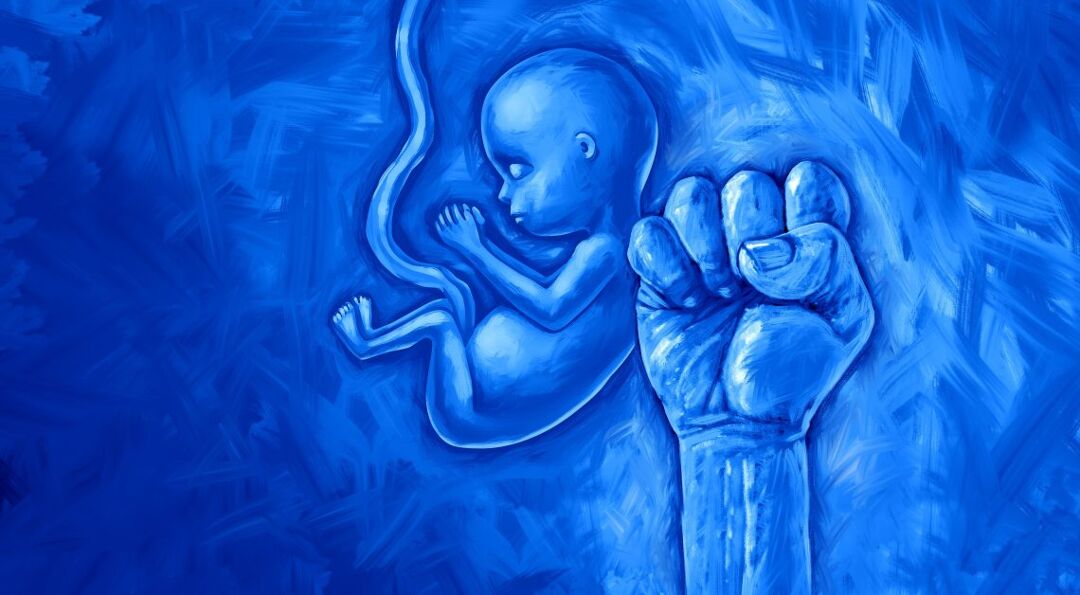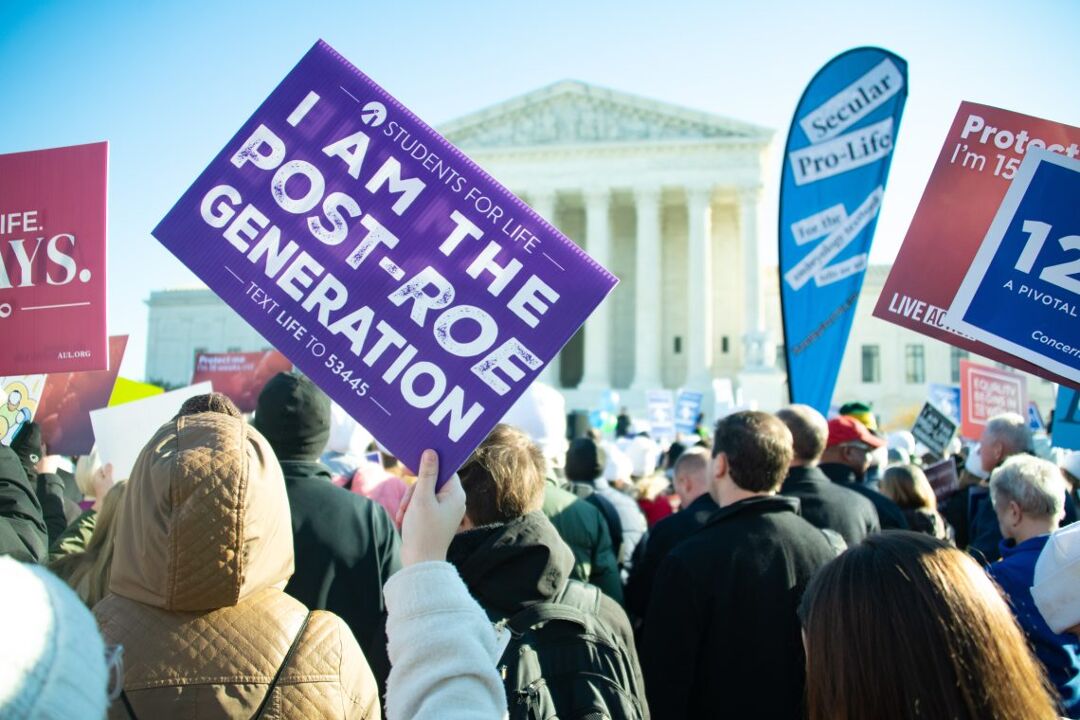
In 2021, Emma Goidel and her spouse, Ilana Caplan, began to question why queer individuals should be required to pay out of pocket for fertility support when heterosexual couples can access coverage more readily.
The couple had been forced to use their savings to cover the one round of IVF and six rounds of IUI it took for them to conceive. Their insurance provider, Aetna, covered treatments for heterosexual couples who claimed they couldn’t get pregnant after six or 12 months (depending on their ages) of intercourse. Queer couples, on the other hand, had to pay out of pocket for a year’s worth of fertility treatments before coverage kicked in.
Related
What the sperm banks won’t tell you: Inside the shocking world of donor conception
A growing coalition of donors, donor-conceived people, and recipient parents are fighting for change in an industry wrought with ethical issues.
The couple filed a class-action lawsuit against Aetna and made history.
Never Miss a Beat
Subscribe to our newsletter to stay ahead of the latest LGBTQ+ political news and insights.
Subscribe to our Newsletter today
The movement for equitable insurance coverage in fertility care is picking up speed, thanks in part to Goidel and Caplan, who inspired Aetna to take the lead in fertility equality. In 2024, hopeful parents celebrated significant victories driven by overdue reforms, successful lawsuits, and a growing commitment from states and employers to provide extensive infertility coverage. In short, the fertility coverage landscape has transformed in recent years, with developments suggesting a more inclusive future.
Now, as the nation braces for a coordinated assault on reproductive autonomy, the community of hopeful LGBTQ+ families stands in a precarious position. Caught between the promising recognition of “social infertility” and the alarming rise of threats to reproductive autonomy, largely fueled by the fetal personhood movement, the topic of queer family-building has become more pressing than ever.
Love, joy, belonging

The lawsuit against Aetna resulted in a significant win for the equitable healthcare movement. Representing the plaintiffs, The National Women’s Law Center emphasized the discrimination their clients faced when they incurred tens of thousands in out-of-pocket costs for multiple fertility treatments prior to qualifying for infertility coverage. By contrast, heterosexual couples only needed to confirm unprotected intercourse for a specified time to receive partial reimbursement.
Since LGBTQ Nation last reported on the Goidel vs. Aetna lawsuit, the US District Court of Southern New York has preliminarily approved the settlement between Aetna and the plaintiffs. Under this landmark decision, plaintiffs will receive reimbursement for their out-of-pocket fertility costs and additional compensation from a common fund. The settlement also spurred Aetna to announce that it will become the first major US insurer to broaden fertility treatment coverage for LGBTQ+ people.
“Queer people are as deserving of parenthood as anyone else, and Aetna’s commitments in the settlement agreement affirms that,” Goidel told LGBTQ Nation. “To those impacted who can now begin to receive compensation or access fertility care that was previously unavailable — I hope you feel seen and know you are not alone, you have not been alone, and there are people fighting to remove the barriers you face to creating families.”
The resolution of the years-long case followed the 2023 revision of the definition of infertility by the American Society for Reproductive Medicine (ASRM). The previous definition referred to the inability to conceive as a set period of time engaging in unprotected, regular intercourse without achieving pregnancy. The change was put forward as a clarification that the need for medical intervention in pregnancy can stem from various factors, including same-sex partnerships.
“Everyone should be able to experience the love, joy, and belonging of family,” asserts Meg York, Director of LGBTQ+ family law and policy and Senior Policy Counsel for Family Equality, which partners with both national and local advocacy groups to encourage legislators to ensure their states offer comprehensive and inclusive fertility coverage.
For more than 40 years, Family Equality has advocated for queer families, and its work helped lay the foundation for the ASRM shift. York stated that “an inclusive definition of infertility (acknowledging that the need for donor gametes or donor embryos is enough) is a step in the right direction to ensure that all people have better access to creating the family of their dreams.”
The change is encouraging, though typically, insurers take several years to adjust their policies to incorporate an update from ASRM, which, in this case, will include what has increasingly become known as social infertility.
The life-changing rise of “social infertility”

Social infertility describes a situation where an individual desires children but is unable to conceive due to social circumstances rather than biological ones. This includes aspiring LGBTQ+ parents and single parents.
The term surfaced in discussions about fertility equality, as reported by the New York Times in 2020. Catherine Sakimura, former Deputy Director at the National Center for Lesbian Rights, argued for the change, stating, “We must shift our thinking so that the need for assisted reproductive technologies is not a condition, but simply a fact.”
Only a few states have adopted comprehensive policies around social infertility. Maine, for example, prohibits health insurers from imposing “any limitations on coverage for fertility services due to an enrollee’s use of donor gametes, embryos, or surrogacy.”
Other states, including California, Colorado, Illinois, Washington D.C., and most recently, New Jersey, have also been recognized for their inclusive policies. Rhode Island lawmakers are now also considering a bill that would extend fertility coverage to same-sex couples.
At the same time, various organizations are taking their own steps toward inclusive fertility coverage. Notably, certain employers, including Amazon, have incorporated this benefit into their employee packages to draw in talent. A few agencies have also taken significant steps in this area, such as the New York City Government, which recently revealed plans to provide up to $10,000 in “Family Building Benefits” to reimburse expenses related to adoption, surrogacy, and egg or sperm donation.
Fetal personhood exits the fringe

Despite the significance of these victories, advancements in fertility equality remain susceptible to broader threats. Among the most extreme is a far-right movement to shut down all IVF clinics, making the question of insurance coverage irrelevant.
During the IVF (in-vitro fertilization) process, multiple eggs are generally harvested and fertilized before being frozen. Some embryos go unused for various reasons, including non-viability and the common practice of collecting more eggs than the desired number of children. As a result, IVF clinics often dispose of the surplus.
Once considered a fringe ideology, the concept of fetal personhood is now gaining alarming traction. Those who support it define “personhood” as beginning at the very first stage of egg fertilization. The Supreme Court’s Dobbs v. Jackson decision overturning Roe v. Wade laid the groundwork for a nefarious political agenda that aims to exert complete control over reproductive freedom. Fetal personhood would grant constitutional rights to fertilized eggs and therefore strip the person carrying of their own liberties.
The fetal personhood movement views embryos as people and advocates for recognizing incomplete incubation as murder. Recently, we have seen a rise in efforts to criminalize women based on the outcomes of their births. If embryos were granted the right to life, clinics and even parents discarding unused frozen embryos could face severe legal repercussions. This would lead to sweeping closures of IVF clinics.
The role of Project 2025

Opposition to IVF is extremely unpopular among the general public. Recent polls by Pew show that 70% of Americans view IVF positively, with only 8% believing its a “bad thing.” Even Donald Trump acknowledged public opinion on the matter by claiming during his campaign that his administration would ensure IVF coverage by either the government or insurance companies, though many on the left accused him of blatantly lying.
Despite IVF’s popularity, the Republican party’s hard-line maintains that life begins at conception. The extension of this logic is being tested in conservative state courts through lawsuits testing how fetal personhood affects issues like carpool lanes, minor consent, and the legality of incarceration for pregnant people. Religious leaders, such as the Southern Baptist Convention, have declared IVF and its handling of embryos as feticide.
The Heritage Foundation, authors of the notorious Project 2025, outlines a policy agenda for the first 180 days of a GOP presidency that sets the groundwork for far-reaching attacks on the reproductive autonomy and rights of women and queer people. The inclusion of IVF access in Project 2025 ushers what used to be considered a fringe extremist perspective into the realm of political possibility.
The Guttmacher Institute and Power have warned that in our post-Roe world, IVF is vulnerable in 30 states. According to the National Conference of State Legislatures, 38 states already have fetal homicide laws, 29 of which include language that defines life at the earliest stages of conception. How that relates to abortion bans and IVF regulations is already being brought to the nation’s highest courts, with advocates anticipating further attacks on reproductive freedom.
The future is fertile

Despite the fetal personhood movement, recent legal advancements and widespread support for IVF offer the potential for a promising future. While the path ahead remains uncertain, the collective resilience of LGBTQ+ families, allies, and advocacy organizations offers a quietly enduring hope for what lies ahead.
Goidel shares that hope: “Aetna sets an example of what is possible — and the kind of allies we can find — when we tell our stories together and stand for our queer community.”
Subscribe to the LGBTQ Nation newsletter and be the first to know about the latest headlines shaping LGBTQ+ communities worldwide.